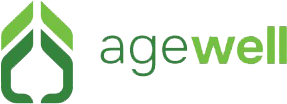
Selecting the ideal caregiver is a pivotal step for families navigating senior care, directly influencing your loved one’s safety, overall well-being, and emotional comfort. This guide offers carefully chosen questions and expert advice to help adult children and family caregivers effectively assess potential candidates, easing uncertainty and ensuring compassionate, reliable assistance. We’ll cover:
- Essential caregiver traits (compassion, communication, dedication)
- Ways to confirm experience and specialized abilities
- Behavioral interview methods for handling challenges and emergencies
- Verifying dependability, background checks, and spotting potential issues
- Collaborating on care plans and keeping families informed
- Crucial questions about agencies, legalities, and finances
- A straightforward hiring checklist for objective candidate comparison
If you’re ready to connect with skilled professionals, explore the Find Senior Care directory on Age Well Now for access to vetted caregivers and comprehensive resources.
Important Caregiver Qualities
Identifying key caregiver qualities means evaluating their empathy, communication skills, and genuine motivation, all of which are vital for ensuring safety and personalized care. When these attributes are present, the caregiver provides patient-centered support that upholds dignity and builds trust.
Before diving into specific traits, let’s clarify their definitions and impact:
| Quality | Definition | Impact on Loved Ones |
|---|---|---|
| Empathy | The capacity to understand and share the feelings of another. | Fosters emotional connection and reduces feelings of isolation or anxiety. |
| Patience | The ability to tolerate delays, problems, or suffering without becoming annoyed or upset. | Ensures that tasks are completed respectfully, even when dealing with slower paces or fluctuating moods. |
| Reliability | The quality of being consistently good in quality or performance; dependability. | Guarantees that daily routines are maintained and essential tasks, like medication management, are handled consistently. |
Understanding these fundamental traits lays the groundwork for more in-depth evaluation and helps shape interview questions to uncover a candidate’s true strengths.
Essential Personal Traits
Truly exceptional caregivers exhibit empathy, patience, and adaptability.
- Empathy enables the caregiver to sense emotional shifts and offer comfort during moments of distress.
- Patience allows for calm and understanding responses, especially when dealing with repetitive actions or cognitive changes.
- Adaptability ensures they can smoothly adjust to evolving health needs and family preferences.
These qualities cultivate a supportive atmosphere that significantly enhances daily living and emotional security.
Impact of Communication Skills
Clear and compassionate communication is essential for ensuring instructions are followed correctly and that any concerns are addressed promptly.
- Active listening helps in understanding subtle cues of discomfort or pain.
- Clear, simple explanations assist seniors in adhering to medication schedules.
- A gentle tone and positive language build rapport and encourage cooperation.
Effective communication prevents misunderstandings, leading to timely interventions and improved overall safety.
Motivation and Passion
A caregiver who is passionate about their work brings sustained energy and dedication, even through demanding schedules.
- Intrinsic motivation fuels consistent engagement in both physical and social activities.
- A genuine passion for caregiving often leads to a commitment to ongoing professional growth.
- Enthusiasm for the role can uplift seniors’ spirits and encourage their active participation.
Motivated caregivers help establish positive routines that support both emotional well-being and physical health.
Assessing Experience and Skills
Evaluating a caregiver’s experience and practical skills involves a combination of targeted questions and reviewing documentation to confirm their competence in senior care and any specialized areas, ensuring they can meet specific needs.
Research from 2003 pointed out that home health care nurses often don’t routinely check on the health of family caregivers, even though these caregivers play a crucial role in client care. The study found that many caregivers reported their own health as poor or fair and had significant unmet health needs, highlighting the critical need for systematic caregiver assessments to identify issues that could affect their ability to provide care.This finding underscores the importance of thoroughly assessing caregivers, including their own well-being and capacity, which is vital for ensuring consistent, high-quality care and effective care planning.
Previous Roles and Client Types
To understand the breadth of their experience, ask:
- “Could you describe your experience working with individuals who have dementia or Alzheimer’s?”
- “What types of medical conditions or chronic illnesses have you managed previously?”
- “Approximately how many hours per week did you work in each role, and what were your primary duties?”
These questions help reveal relevant background and adaptability across different care environments.
Verifying Certifications and Training
Confirm professional qualifications by requesting:
- Copies of certifications such as CPR, first aid, or medication administration.
- Details about any workshops or training completed in areas like dementia care or palliative care.
- Evidence of ongoing continuing education or membership in professional caregiving organizations.
Verifying these credentials ensures the caregiver’s skills meet established safety and clinical standards.
Competence in Personal Care and Medication Management
Assess practical abilities with questions like:
- “How do you safely assist a client with transfers or repositioning?”
- “Can you walk me through your process for administering and documenting medications?”
- “What methods do you use to help maintain personal hygiene while respecting a client’s dignity?”
These inquiries highlight hands-on expertise and attention to detail.
Behavioral Interviewing for Problem-Solving and Stress Management

Behavioral questions are designed to show how a candidate uses critical thinking and maintains composure under pressure, which directly impacts the quality of care during unexpected situations.
Handling Difficult Situations
Utilize the STAR method:
- Situation: “Tell me about a time a client became agitated.”
- Task: “What was your role in managing that situation?”
- Action: “What specific steps did you take to de-escalate the agitation?”
- Result: “What was the outcome of your intervention?”
This structured approach clarifies their conflict-resolution skills and emotional resilience.
Emergency and Crisis Management
Gauge their preparedness with questions such as:
- “How would you react if a client suddenly experienced difficulty breathing?”
- “What is your procedure for contacting emergency services or family members during a crisis?”
- “Have you ever had to manage a client’s fall or seizure? If so, what steps did you follow?”
These questions confirm their understanding of protocols and ability to make quick decisions.
Confidentiality and Ethical Standards
Ensure they understand and respect privacy by asking:
- “How do you ensure client health information remains confidential during daily care?”
- “Have you ever faced an ethical challenge in your work? How did you handle it?”
- “What steps do you take to comply with privacy regulations like HIPAA and respect client boundaries?”
Strong ethical principles are crucial for protecting sensitive information and maintaining trust.
Ensuring Reliability, Availability, and Professionalism
Confirming a candidate’s commitment and fit within your needs ensures consistent scheduling and respectful interactions, building family confidence in the day-to-day care provided.
Availability and Transportation
Clarify logistical details by asking:
- “What are your typical available hours on weekdays and weekends?”
- “Do you have reliable transportation, and what are your backup plans for unexpected travel issues?”
- “What is your comfortable commuting distance for regular work shifts?”
Understanding these logistical aspects helps prevent gaps in care coverage.
Verifying Background Checks and References
Authenticate a candidate’s history by requesting:
- Recent criminal background check reports.
- Contact details for at least two professional references.
- Permission to confirm employment history and gather feedback from previous employers.
This process helps identify any inconsistencies and validates past performance.
Red Flags During Hiring
Be aware of potential warning signs, such as:
- Providing vague or contradictory information about past work experiences.
- Hesitancy in sharing necessary documentation or reference contacts.
- Making overly negative comments about previous clients or employers.
Identifying these indicators early can help prevent hiring unreliable or unprofessional individuals.
Care Planning and Family Communication
Effective care plans and open communication with families ensure that care consistently adapts to changing needs and aligns with family expectations.
Care Plan Development and Updates
Understand their collaborative approach by asking:
- “How do you involve healthcare professionals in updating care plans?”
- “How often do you typically provide progress updates to families?”
- “Describe your process for adapting a care plan when a client’s health status changes.”
This clarifies their proactive planning and teamwork capabilities.
Assessing Communication Style
Evaluate their communication transparency by inquiring:
- “How do you manage family concerns or conflicting instructions from different family members?”
- “What communication methods (phone, email, in-person meetings) do you prefer for providing updates?”
- “Can you share an example of a time you facilitated a sensitive conversation with a family member?”
Strong communication skills are key to building trust and minimizing misunderstandings.
Fostering a Positive Environment
Assess their strategies for engagement by asking:
- “What types of activities do you incorporate to support mental wellness and social interaction?”
- “How do you encourage clients to participate in their daily routines?”
- “Could you provide an example of a creative approach you used to improve a client’s mood?”
Active engagement contributes significantly to emotional health and overall quality of life.
A 2020 qualitative study examined current practices, challenges, and opportunities for systematically assessing the needs and risks of family caregivers within primary care settings. The findings revealed considerable variation in how caregiver needs and risks were identified, with participants suggesting that incorporating standardized caregiver assessments could improve patient care, enhance communication, and validate the efforts of caregivers.This research strongly supports the article’s recommendation for comprehensive caregiver assessments, particularly in understanding their needs and how this impacts the quality of care provided and communication with healthcare professionals and families.
Legal, Financial, and Agency Considerations
When working with an agency, families need to confirm compliance, understand costs clearly, and ensure quality assurance to protect their interests and guarantee reliable service.
Verifying Agency Credentials
Confirm the agency’s legitimacy by asking:
- “Can you provide documentation of your state licensing and bonding?”
- “What types of insurance coverage are in place to protect clients in case of accidents?”
- “How does the agency ensure ongoing compliance with all relevant regulatory standards?”
These checks provide essential legal safeguards and peace of mind.
Payment Structures and Contracts
Clarify financial arrangements by asking:
- “What are your billing cycles, and what payment methods do you accept?”
- “Are there any additional charges for overtime hours or specialized services?”
- “What is the agency’s policy for handling cancellations or changes to the agreed-upon care schedule?”
Transparent contracts help prevent unexpected financial burdens.
Agency Screening and Training
Ensure quality assurance by requesting details on:
- The agency’s caregiver recruitment, background check, and reference verification procedures.
- Information about their internal training programs and how caregiver performance is evaluated.
- The types of ongoing professional development opportunities offered to their caregivers.
Thorough screening and training processes are fundamental to maintaining high standards of care.
A 2012 study examined the hiring, screening, and training practices of home care agencies. It revealed considerable variation and often subpar quality in these processes. The research indicated that agencies frequently relied on self-reported experience and conducted criminal background checks only within the state of employment, potentially offering a false sense of security to families. This study directly supports the article’s emphasis on the critical need for thorough verification of caregiver credentials, background checks, and asking detailed questions about an agency’s screening procedures to ensure reliability and professionalism.
Streamlining Interviews with a Hiring Checklist

A standardized checklist ensures a consistent evaluation process for all candidates, allowing families to objectively compare strengths and identify any gaps.
Before detailing the components, consider how a checklist can organize your hiring process:
| Checklist Component | Attribute Assessed | Benefit to Your Search |
|---|---|---|
| Experience Summary | Years of service and types of clients | Quickly filters candidates with relevant backgrounds |
| Skills and Certifications Log | Training, licenses, and specializations | Confirms adherence to safety and skill requirements |
| Behavioral Response Records | Examples of problem-solving in challenging situations | Highlights critical thinking and composure under pressure |
| Availability and Logistics Chart | Schedule flexibility and transportation arrangements | Prevents potential scheduling conflicts and ensures reliability |
| Reference Verification Notes | Feedback from references and dates of contact | Validates professionalism and dependability |
Key Checklist Components
A comprehensive hiring checklist should include:
- Candidate’s resume detailing caregiving roles and responsibilities
- An inventory of certifications and training completed
- Notes on responses to behavioral interview questions
- Status of background check and reference verification
- Details on availability and transportation plans
This ensures that no crucial aspect of the hiring process is overlooked.
Fair Candidate Comparison
To maintain objectivity throughout the process:
- Rate each candidate’s response using a consistent scoring system (e.g., a scale of 1–5 for empathy or reliability).
- Assign priority levels to different categories (e.g., specialized skills might be more critical than immediate availability).
- Discuss the compiled results with family members, comparing them against the essential care requirements for your loved one.
Standardized scoring facilitates data-driven decision-making.
Downloadable Resources
Families can benefit from readily available resources such as:
- Printable guides with suggested interview questions
- Editable templates for hiring checklists
- Instructional videos on effective behavioral interviewing techniques
- Sample worksheets for care plan collaboration
These tools simplify preparation and build confidence in the hiring process.
Frequently Asked Questions
What are the most important qualities in a caregiver?
Key qualities include empathy, patience, adaptability, strong communication skills, and genuine motivation. These ensure personalized, dignified, and safe care.
How can I verify a caregiver's experience and qualifications?
Request details on previous roles, client types, and medical conditions managed. Always ask for copies of certifications (CPR, first aid), specialized training, and professional references. Conduct thorough background checks.
What should I ask about a caregiver's approach to emergencies?
Use behavioral questions (STAR method) to understand how they’ve handled difficult situations, client agitation, or medical emergencies like falls or breathing difficulties. Confirm their knowledge of emergency protocols and communication procedures.
What are red flags to watch for during the hiring process?
Be cautious of vague work history, reluctance to provide documentation or references, and negative comments about past clients or employers. These can indicate unreliability or unprofessionalism.
Conclusion
Selecting the right caregiver is crucial for ensuring the safety, well-being, and emotional comfort of your loved ones. A thorough assessment process, focusing on essential qualities like empathy, communication, and dedication, combined with verifying experience, skills, and reliability, empowers families to make informed decisions. Utilizing behavioral interview techniques, understanding care planning, and addressing legal and financial aspects, especially when working with agencies, are vital steps.
By employing structured tools like hiring checklists and leveraging resources such as the Age Well Now directory, families can confidently find compassionate, competent, and professional caregivers tailored to their specific needs, ensuring peace of mind and high-quality support.

